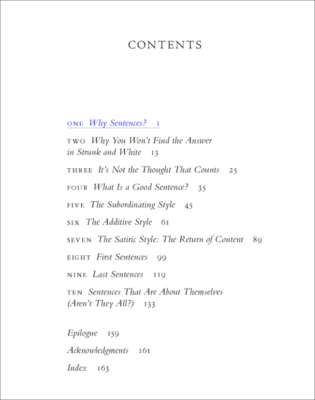Book Reviews
Business Book Review #42: Stanley Fish – How to Write a Sentence
This book was recommended to me yonks ago but for whatever reason I always put it off.
Last week, it finally arrived at the library. I should say I hardly ever buy books anymore as I have way too many. However, after reading Piranesi, I’m tempted to make an exception. More on that later.
How to Write a Sentence
So, what’s the book about?
It’s not about words. He says that upfront. It’s about sentences. How to identify, appreciate, and maybe go on to write your own lovely sentences.
It’s also not about grammar. While grammar and style guides have their place, his aim is to cultivate an love of sentences, in the same way you might come to love opera, fine wine, and things like that.
It is about sentences.
“Fish’s aim is to offer a guide to sentence craft and appreciation that is both deeper and more democratic. What, at base, is a sentence? he asks, and then goes on to argue that the standard answer based in parts of speech and rules of grammar teaches students “nothing about how to write.”
Adam Haslett at Slate
“In later chapters, Fish gives examples and analysis of effective first and last sentences, such as the succinct yet haunting ending of Orwell’s 1984: He loved Big Brother. He concludes by offering a simple equation that argues for the value of crafting sentences as a means to support reading comprehension and a love of language:
sentence craft = sentence comprehension = sentence appreciation
While the focus is very tight in the book, most of the examples tend to come from the classics. Jane Austin, Henry James, DH Lawrence… the great writers.
However, one area where I feel it came a little short was the lack of examples from modern writers. Cormac McCarthy, for example.
“If you can begin to understand an accomplishment in detail, and be able to talk about what makes it work, you will begin to know why your sentences work or don’t work,” Fish says.
Instructor’s Guide
Scott Pitcock wrote this teacher’s guide to further the exercises that can be found in the pages of How to Write a Sentence, and it’s keyed to Fish’s book in a chapter-by-chapter fashion.
“For each of the book’s ten chapters, a teacher-friendly summary is presented at the outset, and then four questions are given. These questions are all directly addressed to your students; the first two (questions 1 and 2) are meant to encourage individual responses or classroom discussions, while the following two (questions 3 and 4) are presented as homework assignments, paper-writing requirements, or the like. The book’s brief Epilogue warrants a summary, too, along with two final questions.”
Summary
It’s a short book, less than 200 pages and clips along at a nice pace.
If you’ve read either of Francine Prose’s Reading Like a Writer or James Wood’s How Fiction Works, you’ll probably like this.
3.5 out of 5 stars.
About the Author: Stanley Fish is a professor of law at Florida International University in Miami, and dean emeritus of the College of Liberal Arts and Sciences at the University of Illinois in Chicago.
Get the book from Amazon at: https://amzn.to/46AEpEB

